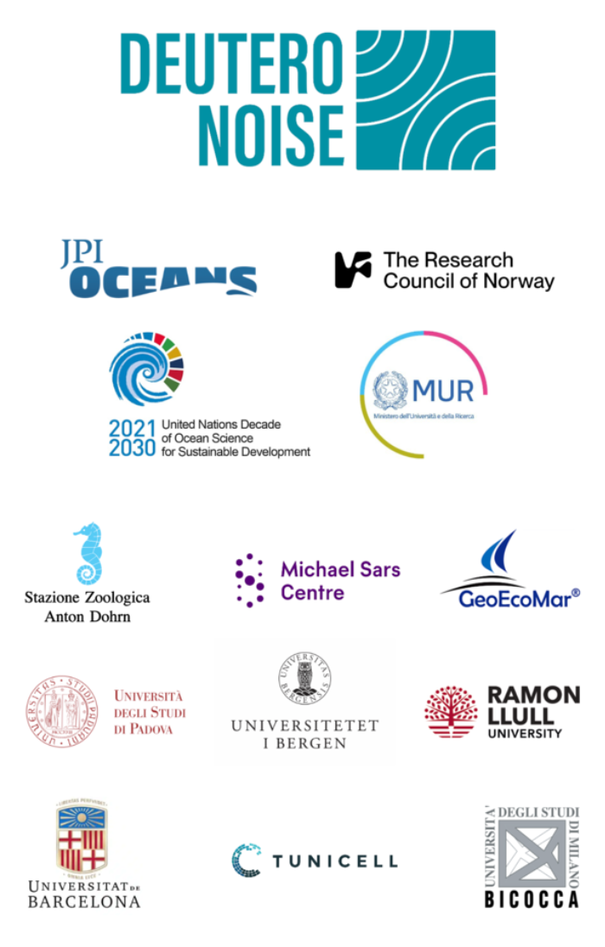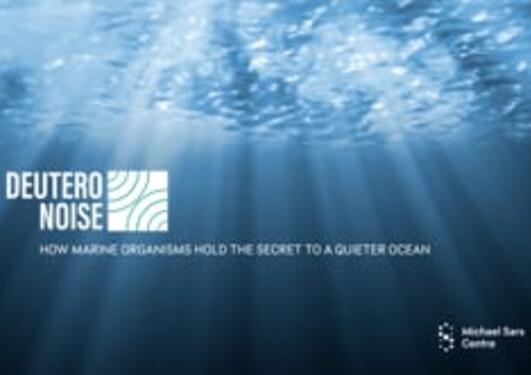Setting up the DeuteroNoise project for success
Professor Giovanni Zambon and researcher Dr. Valentina Zaffaroni Caorsi from the University of Milan-Bicocca recently visited the Centre to conduct preliminary experiments as part of the pan-European project DeuteroNoise.
Main content
A collaborative effort aims to characterize maritime noise and its impact on ecologically relevant marine invertebrate species to affect policymaking. “In the last decade, I would say that the concern about anthropogenic noise increased a lot”, Dr. Zaffaroni Caorsi said. “Now after researching, we have understood that not only humans are affected by it, but also the other animals”. To address this pressing issue, a consortium of European research institutions initiated the DeuteroNoise project, with support from the Joint Programming Initiative Healthy and Productive Seas and Oceans (JPI Oceans).
In Bergen, the project specifically focuses on investigating the effect of noise on the tunicate Ciona intestinalis under the lead of Michael Sars Centre group leader Marios Chatzigeorgiou, who serves as the scientific coordinator for DeuteroNoise. How much noise is too much noise for marine invertebrates? The team is investigating the thresholds at which noise pollution becomes detrimental to key species, by exposing them to sounds in controlled environments. “The biggest challenge on this project is that we are working with different species, and each of them has a different biology”, Dr. Zaffaroni Caorsi explained.
As soundwaves are affected by each component of the environment, playing sounds in an aquarium without replicating the animal’s natural habitat is insufficient. In the Chatzigeorgiou laboratory, the team worked closely with researcher Sissel Nordland and research intern Ingrid Cavazos to calibrate equipment for tunicates. The goal is for Sissel and Ingrid to become autonomous in recording Ciona’s response to the marine noise. “It was important for the project to have Giovanni and Valentina perform this work in Bergen”, Sissel said. “To be relevant to policymakers, our research must show that significant changes occurring in our model organisms are a result of underwater noise”.
“To be relevant to policymakers, our research must show that significant changes occurring in our model organisms are a result of underwater noise”
- Sissel Nordland
Prof. Zambon, whose background is in physics, enthusiastically traded room acoustics for soundscape ecology to join the project. One major difference between terrestrial and marine environments, he explained, is the borderless nature of the oceans. Without obstacles, such as buildings or forests, sounds propagate further and impact larger areas. “So I can say that regarding the sea, there isn’t an area without noise pollution”, he added. "This is a is a real problem and this is why we have to focus on the study of the noise coming from vessels and the ships in the sea.”
The visit of Prof. Zambon and Dr. Zaffaroni Caorsi to Bergen signifies a significant step forward for the DeuteroNoise project. Thanks to their expertise and contributions, the Chatzigeorgiou group will soon obtain preliminary results that will, the team hopes, change the way ecosystems are protected from noise in the sea.








